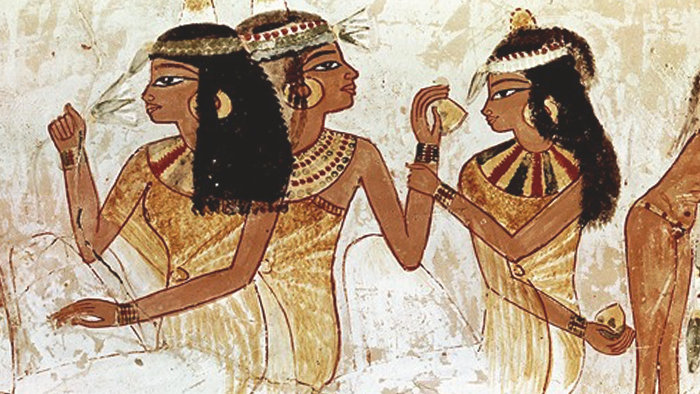
02 Jul The Ancient’s Craze of Aromas
Posted at 15:50h
in History
We all love perfumes and scented oils of all sorts. According to market research firm, Global Industry Analysts, it is estimated that in 2018, the perfume industry will reach a value of approximately $45.6 billion, proof that perfumes have now become an essential commodity.
But this modern day obsession with perfumes is nothing new. In fact, as history shows us, perfumes were just as desired by the ancients, and used for all sorts of causes. Here are some interesting facts confirming humanity’s craze with aromas:
- The real perfume lovers of antiquity were not satisfied by anointing themselves with only one scent, instead they used different perfumes for different parts of the body.
- The Assyrian King Sardanapalus of the 7th century B.C.E., as the story goes, claimed that the ultimate pleasure in life would be to die between his wives and his perfumes.
- Greek philosopher Plato did not share this view, he denounced perfumes, stating they were immoral and were only to be used by prostitutes.
- In Ancient Egypt, around 1400 B.C., the practice of perfumed conditioning oils became a custom at social gatherings, in which perfumed cones, made of animal fat and sweet-smelling myrrh, were placed on the heads of guests. During the evening, as the cone melted away, a trickle of wax would run down the hair and face, releasing an intoxicating smell. Servants would regularly replace the cones.
- In the ancient world there had been no division between foods and fragrances, foods could be perfumed and perfumes could be, and were for the most part, eaten.
- In Ancient Rome, amphitheaters were sweetened by fountains spraying perfumed water. In many ways perfumes were not just an individual matter, as such collective perfuming was an important way in both entertaining and impressing the masses. Perhaps more interesting is that great braziers of incense were lit during the intervals of the famous games performed in the arena, in order to offset the stench of the dead bodies exacerbated by the hot sun.
